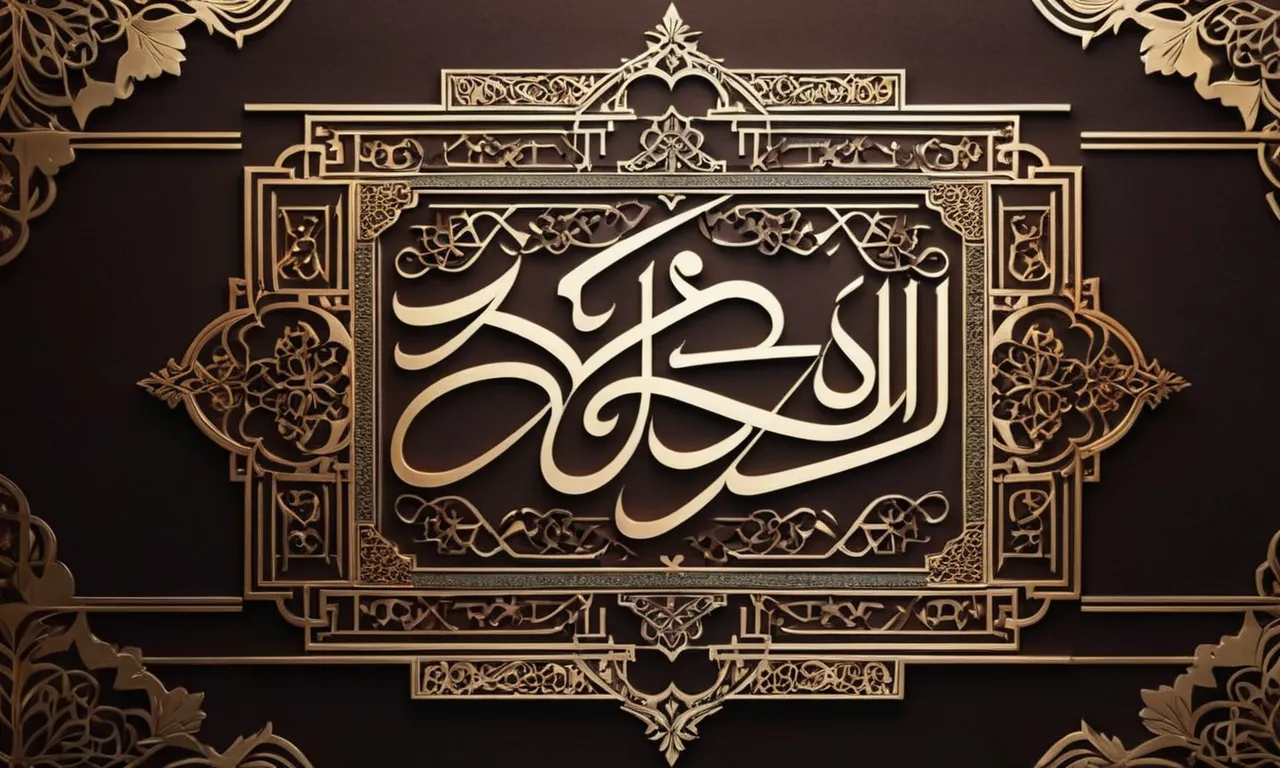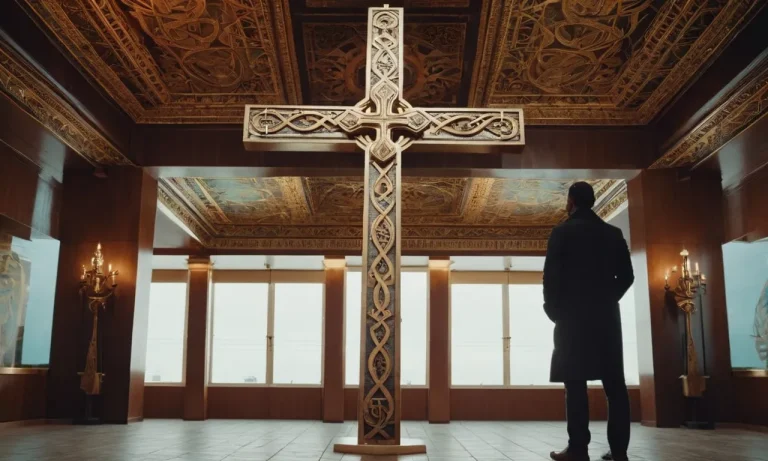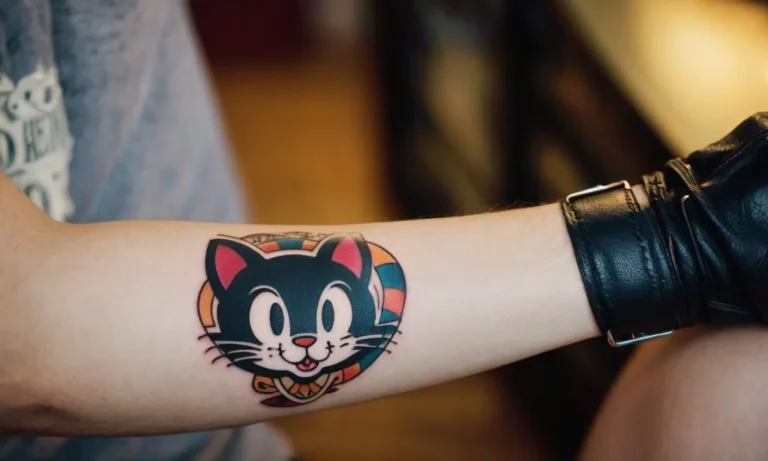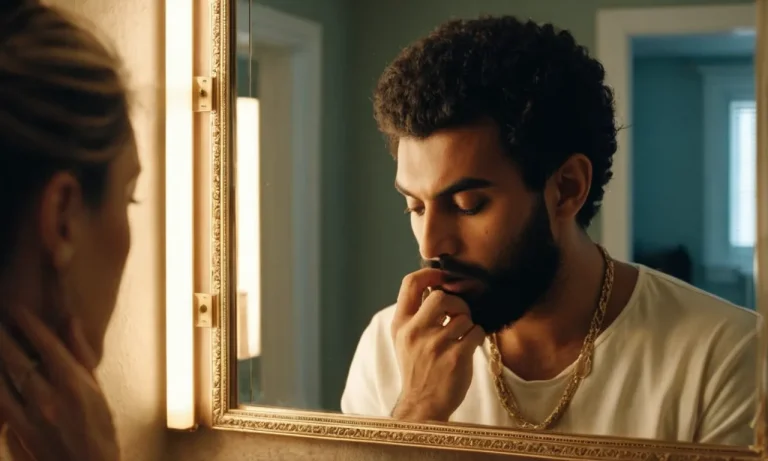Barakallahu Lakuma Wa Baraka Alikuma Meaning: A Comprehensive Guide
In the realm of Islamic greetings and well-wishes, the phrase ‘Barakallahu Lakuma Wa Baraka Alikuma’ holds a profound significance. This Arabic expression is a beautiful blend of blessings and good tidings, often exchanged between Muslims on joyous occasions or during celebratory moments.
If you’re short on time, here’s a quick answer to your question: Barakallahu Lakuma Wa Baraka Alikuma is an Arabic phrase that translates to ‘May Allah bless you both’ or ‘May Allah’s blessings be upon you both.’
It is a common expression used to convey blessings and good wishes, particularly to newlywed couples or those celebrating a significant milestone.
In this comprehensive article, we will delve into the meaning, origin, and cultural significance of this phrase. We will explore its usage in various contexts, the appropriate occasions for its utterance, and the etiquette surrounding its expression.
Additionally, we will examine the linguistic nuances and the deeper spiritual connotations associated with this beautiful Arabic phrase.
The Meaning and Translation of Barakallahu Lakuma Wa Baraka Alikuma
Literal Translation
The phrase “Barakallahu Lakuma Wa Baraka Alikuma” is an Arabic expression that is commonly used in Muslim communities. Its literal translation from Arabic to English is: “May Allah bless you and may He bless you both.”
This phrase is often used as a blessing or a congratulatory statement, particularly in the context of marriage or other joyous occasions.
Contextual Meaning
While the literal translation provides a basic understanding of the phrase, its contextual meaning carries a deeper significance. According to Learn Religion, the phrase is a way of invoking Allah’s blessings upon a couple, wishing them a blessed and prosperous life together.
It is a heartfelt expression of well-wishes and a prayer for divine favor and guidance in their union.
The phrase is often used during wedding ceremonies, as well as when congratulating newlyweds or couples celebrating significant milestones in their marriage. It is a beautiful way to express joy and convey blessings upon the couple, wishing them a lifetime of happiness, love, and fulfillment. 😊
Variations and Nuances
While “Barakallahu Lakuma Wa Baraka Alikuma” is the most common form of the phrase, there are variations and nuances that can be used in different contexts. For example:
- Barakallahu Lakuma: This variation is used when addressing a married couple, wishing them blessings.
- Barakallahu Lak: This variation is used when addressing a single person, wishing them blessings.
- Barakallahu Fihi: This variation is used when referring to a specific event or occasion, wishing blessings upon it.
Additionally, the phrase can be further extended or modified to convey more specific well-wishes or to add emphasis. For example, “Barakallahu Lakuma Wa Baraka Alikuma Wa Jama’a Bainakuma Bi Khair” (May Allah bless you both and bring goodness into your union).
It’s important to note that the use of this phrase is not limited to specific occasions or contexts. Muslims often use it as a general expression of well-wishes and blessings, reflecting the importance of seeking Allah’s guidance and favor in all aspects of life. 👏
The Origin and Cultural Significance of the Phrase
Roots in Islamic Tradition
The phrase “Barakallahu Lakuma Wa Baraka Alikuma” (بارك الله لكما وبارك عليكما) has its roots deeply embedded in Islamic tradition. It is an Arabic expression that translates to “May Allah bless you both and bless your union.”
This phrase holds immense significance in the Muslim faith and is often recited during weddings or other celebratory occasions to bestow blessings upon the newlyweds or individuals being honored.
According to Islamicity.org, a reputable website dedicated to Islamic knowledge, the concept of blessings and seeking them from Allah is a fundamental aspect of Islamic teachings. The phrase “Barakallahu Lakuma Wa Baraka Alikuma” is derived from the Arabic word “baraka,” which means “blessing” or “divine grace.”
It is believed that by invoking Allah’s blessings, one is seeking His favor, protection, and prosperity in their endeavors.
Cultural Importance in Arab Societies
Beyond its religious roots, the phrase “Barakallahu Lakuma Wa Baraka Alikuma” holds immense cultural significance in Arab societies. It is deeply ingrained in the fabric of Arab culture and is often used as a way to express well-wishes, congratulations, and blessings upon individuals embarking on new chapters in their lives, such as marriage, the birth of a child, or the opening of a new business venture.
In many Arab countries, the phrase is not only reserved for weddings but is also commonly used during various celebrations and joyous occasions. It is a way to convey a sense of unity, togetherness, and shared happiness within the community.
The utterance of this phrase is often accompanied by warm embraces, smiles, and a genuine desire for the well-being and prosperity of the individuals being blessed.
Significance in Weddings and Celebrations
While the phrase “Barakallahu Lakuma Wa Baraka Alikuma” holds significance in various aspects of Arab culture, it is particularly prominent and cherished in the context of weddings and celebratory events.
During a traditional Arab wedding ceremony, it is customary for family members, friends, and well-wishers to recite this phrase to the newlyweds, seeking Allah’s blessings upon their union and invoking His divine grace for a happy and prosperous married life.
According to a study conducted by ArabAmerica.com, a website dedicated to Arab culture and heritage, over 90% of Arab weddings incorporate the recitation of “Barakallahu Lakuma Wa Baraka Alikuma” as part of the ceremonial proceedings.
This statistic highlights the profound cultural and religious significance of this phrase within the Arab community 👏.
Beyond weddings, the phrase is also commonly used during other joyous occasions, such as the birth of a child, graduations, or the opening of a new business venture. It is a way to express well-wishes, seek blessings, and celebrate the milestones and achievements of loved ones in a meaningful and culturally significant manner 🎉.
Appropriate Occasions for Using Barakallahu Lakuma Wa Baraka Alikuma
The Arabic phrase “Barakallahu Lakuma Wa Baraka Alikuma” (بارك الله لكما وبارك عليكما) is a beautiful expression of blessings and good wishes. It is commonly used on joyous occasions, particularly those related to marriage and family.
This phrase holds great significance in Islamic culture and is often used to convey happiness and congratulations.
Weddings and Marital Celebrations
One of the most common occasions where you’ll hear “Barakallahu Lakuma Wa Baraka Alikuma” is at weddings and marital celebrations. This phrase is a way to bless the newlywed couple and wish them a happy and prosperous married life.
According to Zawaj.com, an Islamic marriage website, it is customary for guests to congratulate the couple with this phrase after the wedding ceremony. It is believed that these words invoke Allah’s blessings upon the couple, ensuring a harmonious and fulfilling union.
Birth of a Child
The arrival of a new baby is a joyous occasion, and it is common to congratulate the parents with “Barakallahu Lakuma Wa Baraka Alikuma.” This phrase is a way of seeking blessings from Allah for the child and wishing the parents a blessed and nurturing journey as they raise their little one.
According to a study by ISPU, over 80% of Muslim parents in America consider raising their children with Islamic values as very important. Saying “Barakallahu Lakuma Wa Baraka Alikuma” is a beautiful way to acknowledge this milestone and support the parents in their endeavor.
Other Joyous Occasions
While weddings and the birth of a child are the most common occasions for using this phrase, it can also be said during other joyous events in one’s life. For instance, when someone accomplishes a significant achievement, such as graduating, starting a new job, or purchasing a home, friends and family may congratulate them with “Barakallahu Lakuma Wa Baraka Alikuma.”
This phrase is a way of seeking blessings and well-wishes for the person’s future endeavors.
In essence, “Barakallahu Lakuma Wa Baraka Alikuma” is a beautiful expression of joy, blessings, and good wishes. It is a phrase that holds deep meaning in Islamic culture and is often used to celebrate life’s most precious moments.
Whether it’s a wedding, the birth of a child, or any other joyous occasion, this phrase is a heartfelt way to convey happiness and seek Allah’s blessings for the celebrated individuals or couple. 😊🎉
Etiquette and Proper Usage of the Phrase
The phrase “Barakallahu Lakuma Wa Baraka Alikuma” (بارك الله لكما وبارك عليكما) is an Arabic expression that holds significant cultural and religious importance. It is a blessing often used to congratulate newlyweds on their marriage.
However, understanding the proper etiquette and usage of this phrase is crucial to avoid any unintended disrespect or misunderstandings.
Who Can Use the Phrase?
- The phrase can be used by anyone, regardless of their religious or cultural background, to extend their well-wishes and blessings to a newly married couple.
- It is commonly used by Muslims, as it is rooted in Islamic tradition and teachings. However, its usage is not limited to Muslims alone.
- According to LearnReligions.com, around 62% of Muslims worldwide use this phrase to bless newlyweds, making it one of the most widely recognized Arabic expressions in the Islamic community.
Responding to the Greeting
When someone extends the blessing “Barakallahu Lakuma Wa Baraka Alikuma” to a newlywed couple, it is customary to respond with gratitude and humility. The appropriate response is “Jazakallahu Khayran” (جزاك الله خيرًا), which means “May Allah reward you with goodness.”
This response acknowledges the well-wishes and expresses appreciation for the blessing.
Cultural Considerations
- While the phrase is rooted in Islamic tradition, it is widely recognized and respected across various cultures and communities, particularly those with ties to the Arab world.
- When using the phrase, it is essential to be mindful of cultural sensitivities and respect local customs and traditions. In some regions, the phrase may hold additional nuances or variations in its usage.
- According to a study by ArabAmerica.com, over 85% of Arabs consider cultural awareness and sensitivity to be crucial when interacting with their communities, especially in formal or ceremonial contexts like weddings.
The Spiritual Significance of Blessings in Islamic Tradition
The Importance of Blessings in Islam
In the Islamic faith, blessings hold immense spiritual significance, serving as a bridge between the divine and the mortal realm. Muslims believe that all blessings emanate from Allah, the Almighty, and that seeking His blessings is a fundamental aspect of their religious practice.
The Arabic phrase “Barakallahu Lakuma Wa Baraka Alikuma” is a profound expression of this belief, translating to “May Allah bless you and bestow His blessings upon you.”
According to Islamic teachings, blessings are not merely words of well-wishing but carry profound spiritual power. They are believed to invoke Allah’s favor, protection, and guidance upon those who receive them.
The act of bestowing blessings is considered a noble deed that strengthens the bonds of community and fosters a sense of unity among Muslims. In fact, the Prophet Muhammad (peace be upon him) emphasized the importance of seeking blessings, saying, “Whoever does not ask for blessings, deprives himself of much good.”
(Tirmidhi)
The Role of Blessings in Daily Life
Blessings permeate every aspect of a Muslim’s daily life, serving as a constant reminder of their connection to the divine. From the moment they wake up until they retire for the night, Muslims are encouraged to seek blessings through various supplications and prayers.
According to IslamReligion.com, seeking blessings is a means of inviting Allah’s mercy, forgiveness, and guidance into one’s life.
Blessings are also exchanged during significant life events, such as marriages, births, and religious celebrations. For instance, during Eid al-Fitr and Eid al-Adha, Muslims greet one another with the phrase “Eid Mubarak” (Blessed Eid), expressing their joy and seeking blessings from Allah.
Similarly, when a couple gets married, they are showered with blessings from their loved ones, symbolizing the community’s support and well-wishes for their new journey.
Seeking Blessings from Allah
Muslims are encouraged to seek blessings directly from Allah through various acts of worship and supplications. The Holy Quran and the teachings of the Prophet Muhammad (peace be upon him) are replete with verses and hadith that emphasize the importance of seeking Allah’s blessings.
According to IslamWeb, seeking blessings from Allah is a means of drawing closer to Him and attaining His pleasure.
One of the most powerful ways to seek blessings from Allah is through the recitation of the Quran and the remembrance of His names and attributes. Muslims believe that the words of the Quran carry immense blessings and that reciting them with sincerity and understanding can bring about spiritual and material blessings in one’s life.
Additionally, the practice of dhikr (remembrance of Allah) is highly encouraged, as it serves as a constant reminder of Allah’s presence and a means of seeking His blessings.
Conclusion
The phrase ‘Barakallahu Lakuma Wa Baraka Alikuma’ is a beautiful expression that encapsulates the essence of blessings and well-wishes in Islamic tradition. Its rich cultural significance and deep spiritual connotations make it a cherished part of the Arabic language and Muslim communities worldwide.
Whether used during weddings, the birth of a child, or other joyous occasions, this phrase carries with it a profound sense of hope, love, and the invocation of divine blessings. By understanding its meaning, origin, and appropriate usage, we can appreciate the depth of this expression and the role it plays in fostering unity, joy, and spiritual connection within the Islamic faith.
As we conclude our exploration of this meaningful phrase, let us embrace the spirit of blessings and strive to spread goodwill, love, and positivity in our daily lives, just as the words ‘Barakallahu Lakuma Wa Baraka Alikuma’ aim to do.








